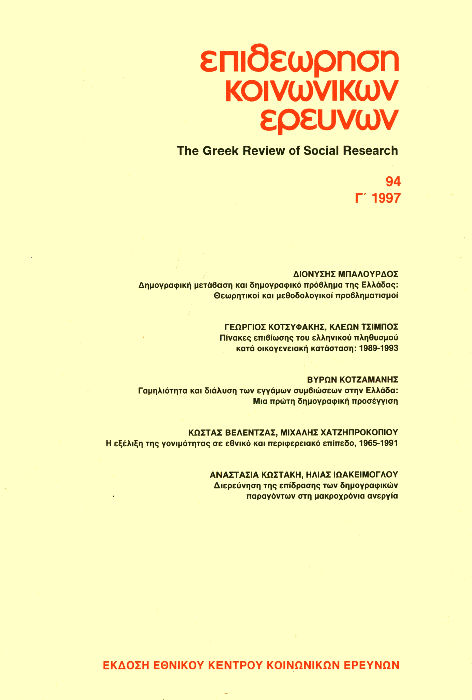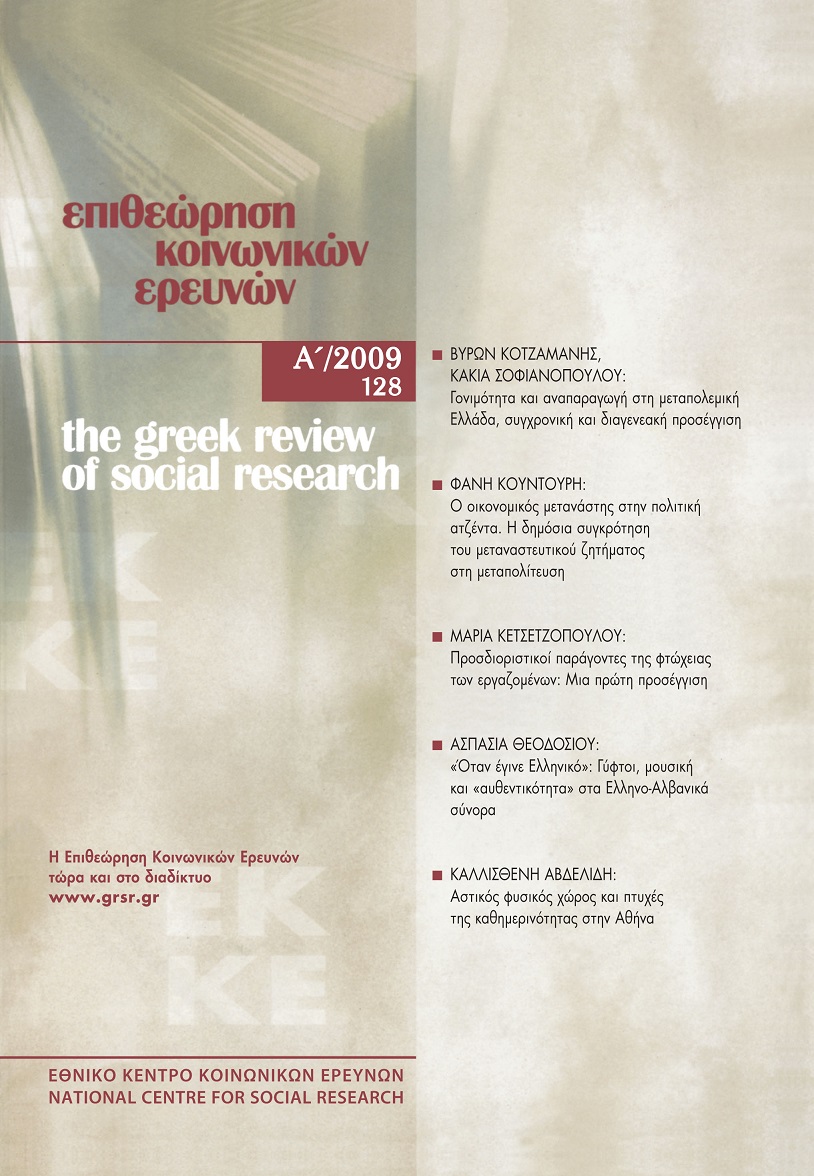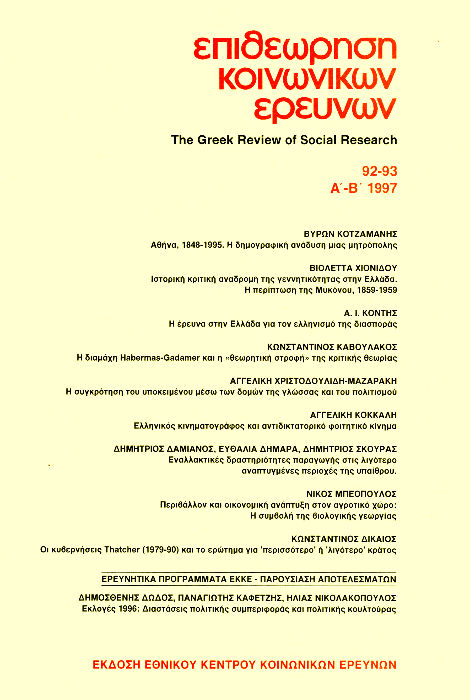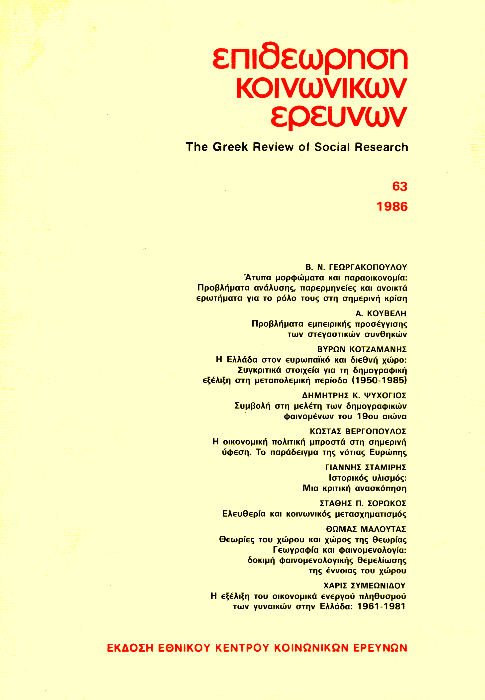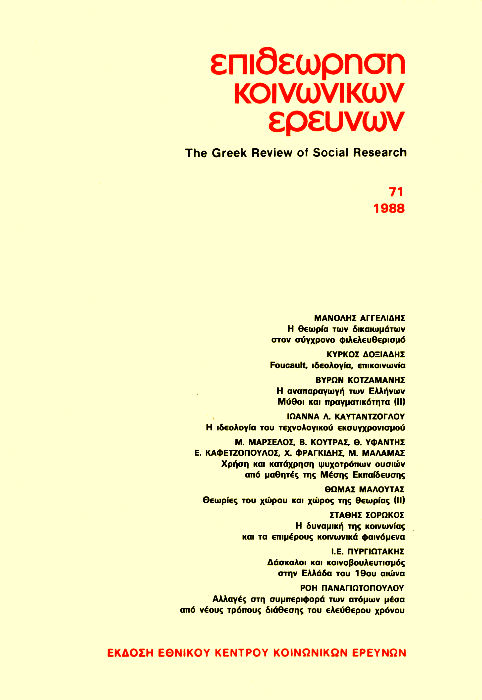Γαμηλιότητα και διάλυση των έγγαμων συμβιώσεων στην Ελλάδα: μια πρώτη δημογραφική προσέγγιση
Abstract
In this article we examine the diachronical changes of the intensity and of the calendar of marriages and divorces. It is a classical demographic analysis aiming at giving answers to some simple, but fundamental questions as:
■ do the successive cohorts of Greek women get married more or less, at a younger or at a more mature age?
■ do their marriages break off more easily or not, and after how many years of living together?
■ what are the emerging tendencies and the immediate perspectives?
■ finally, will the dominant in our country up today model of nuclear family, based on marriage and on the «endurance» of marriage, preserve its universality or will it survive in coexistence with other models more or less marginal, as it happens in most European countries?
The answers to the above questions come before the searching and stating of the determinants of any changes in these fìelds, factors which constitute the basic objective of the sociology of family.
Article Details
- How to Cite
-
Κοτζαμάνης Β. (1997). Γαμηλιότητα και διάλυση των έγγαμων συμβιώσεων στην Ελλάδα: μια πρώτη δημογραφική προσέγγιση. The Greek Review of Social Research, 94, 61–152. https://doi.org/10.12681/grsr.717
- Issue
- 1997: 94 Γ'
- Section
- Articles

This work is licensed under a Creative Commons Attribution-NonCommercial 4.0 International License.
Authors who publish with this journal agree to the following terms:
- Authors retain copyright and grant the journal right of first publication with the work simultaneously licensed under a Creative Commons Attribution Non-Commercial License that allows others to share the work with an acknowledgement of the work's authorship and initial publication in this journal.
- Authors are able to enter into separate, additional contractual arrangements for the non-exclusive distribution of the journal's published version of the work (e.g. post it to an institutional repository or publish it in a book), with an acknowledgement of its initial publication in this journal.
- Authors are permitted and encouraged to post their work online (preferably in institutional repositories or on their website) prior to and during the submission process, as it can lead to productive exchanges, as well as earlier and greater citation of published work (See The Effect of Open Access).

